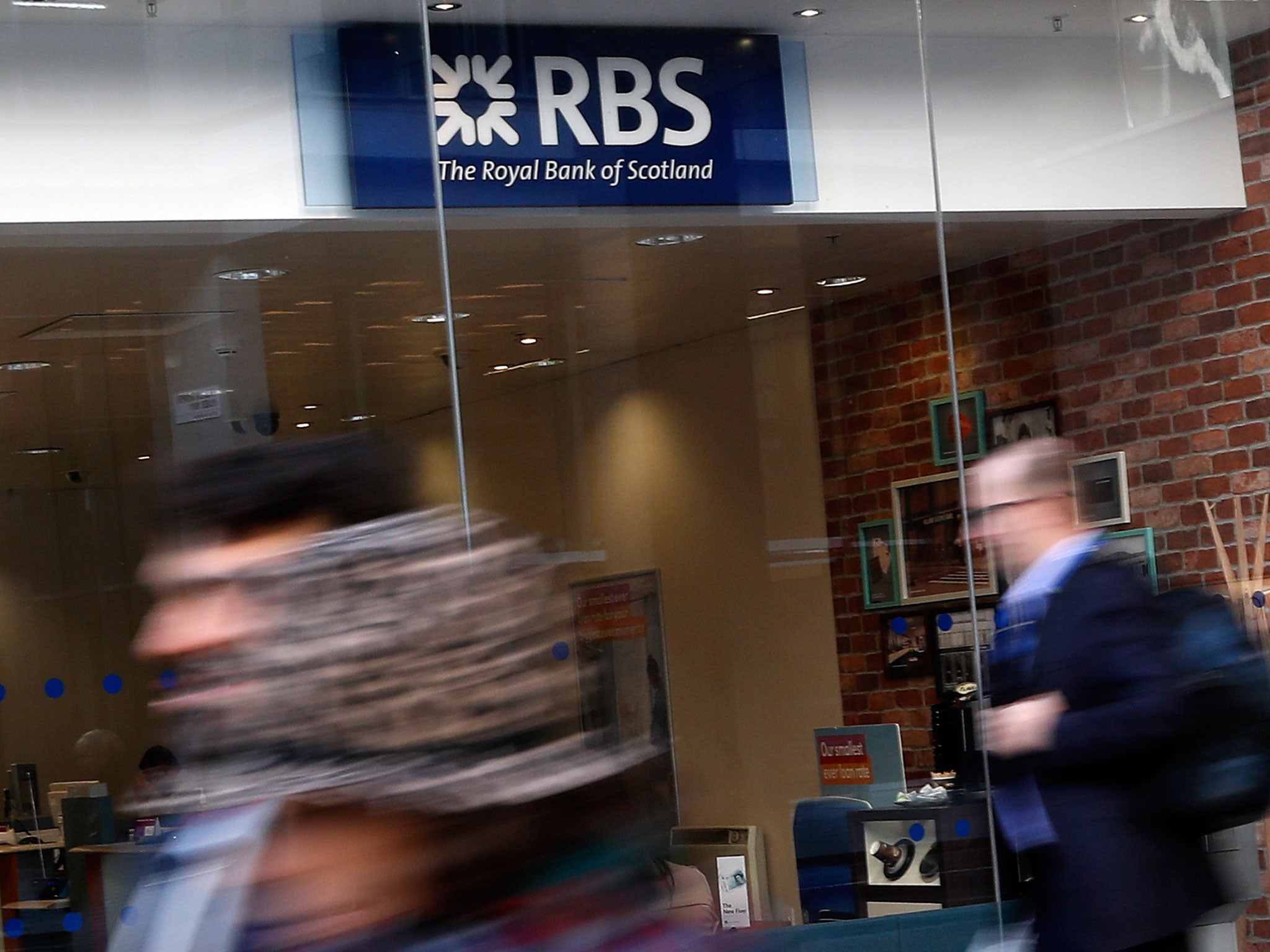It is Italy’s banks, not RBS, which run the risk of being bailed out
Italy's third largest bank Banca Monte dei Paschi di Siena has a non-performing loan ratio of 43.6 per cent – that means that on nearly half its loans, the borrowers cannot even pay the interest, let alone repay the loan itself


It is more than eight years since its near-death experience but the Royal Bank of Scotland remains in the convalescence ward. Alone among British banks it failed the so-called “stress test” imposed by the Bank of England, and will be required to find some way of bolstering its capital. So it will have to shrink its business in some way, or maybe raise new funds from shareholders. If it were to go down that route, this would not be a straightforward task, for the Government, aka the British taxpayer, owns 74 per cent of the bank.
But in reality this is not as grave a situation as it might appear. The test is a severe one: what would happen were there to be a UK house price crash and a severe global recession at the same time? I suppose that could happen and these are the right questions to ask. But global crashes as bad the 2008-09 one only happen about every 70 years, so poor old RBS should be OK for a while yet.
Indeed British banks as a whole look pretty solid by world standards. If you take a real measure of pressure on banks – whether borrowers are paying interest on their loans – as opposed to the hypothetical one of a stress test, we come out near the top of the pack.
Earlier this year the Bank of England published a study on this. The expression is “non-performing loans”, and for the UK banking system as a whole the proportion of these as a total of all loans was 2.7 per cent. That was at the end of 2014, and since then there will have been some improvement. The US was even better, at 2.0 per cent, but Italy was 17.3 per cent and Greece 34.3 per cent.
More recent data suggest that the Italian position has not improved and that of Greece has become much worse. Banca Monte dei Paschi di Siena was Italy's third largest bank until this year and is currently the hardest hit. Its non-performing loan ratio is 43.6 per cent. Think about it. On nearly half its loans, the borrowers cannot even pay the interest, let alone be able to repay the loan itself. In Greece it is worse. The non-performing loan ratio of its banking system at the end of September was 51 per cent.
The upshot of all this is that both Italy’s and Greece’s banks may need to be rescued.
German banks, in particular the country’s largest, Deutsche Bank, are weak for a somewhat different reason: in the case of Deutsche, the principal problem is the scale of fines the US authorities may impose on it. These may be larger than the bank’s capital. We don’t yet know the outcome but it may well be that it too needs a state rescue. The difference, however, is that the German state can afford to recapitalise its banking system but neither the Greeks nor the Italians can afford to rescue theirs.
Whenever there is a problem with banks, the issue is whether confidence is maintained. While people have faith that the banks will survive they keep their money in them. When they worry that they won’t they take their money out. We saw what happened to Northern Rock, and RBS actually ran out of money over the weekend before it was rescued. What might trigger a run on Italian banks?
Well, the fear is that the loss of the referendum this Sunday by the Prime Minister, Matteo Renzi, would lead to just such a run. The referendum is about constitutional reform rather than economic policy, but the sub-text is that the Italian economy has not grown since 2000, and that radical economic reforms are needed. Just what those might be is up in the air, but membership of the eurozone is clearly an issue in question.
Now it may be that Italy will scramble through as it always has in the past. But it may not. As we have learnt this year, both markets and voters are unpredictable creatures. A rumbling discontent can burst into a huge explosion. Set in this context the need of RBS for a bit more capital is rather a sideshow.
Join our commenting forum
Join thought-provoking conversations, follow other Independent readers and see their replies
Comments
Bookmark popover
Removed from bookmarks